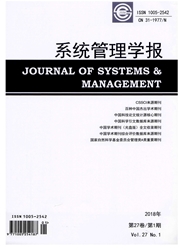

 中文摘要:
中文摘要:
在构建资源消耗的随机性内生增长模型基础上,用常数相对风险规避系数(CRRA)效用函数分析实例,通过计算均值,分析了技术创新的随机性影响,解决了一个技术创新的随机性问题,发现在技术创新过程中的随机变化性往往导致在技术研发方面的投入更小,因其导致边际报酬率减少。通过用CRS道格拉斯生产函数和CRRA效用函数描述出一个独特并且有规律的经济可持续最优增长路线。
 英文摘要:
英文摘要:
With a random endogenous growth model based on resource consumption, and using the constant relative risk aversion (constant relative risk aversion, CRRA) utility function as an example, we solve the technological innovation randomness problem by calculating the mean and analyzing the randomness impact of technology innovation. We find that random changes in the technological innovation process often leads to a smaller investment in technology research and development because it leads to the decrease in the marginal rate of return. A sustainable economic growth path is described by CRS Douglas production function, together with CRRA utility function.
 同期刊论文项目
同期刊论文项目
 同项目期刊论文
同项目期刊论文
 期刊信息
期刊信息
